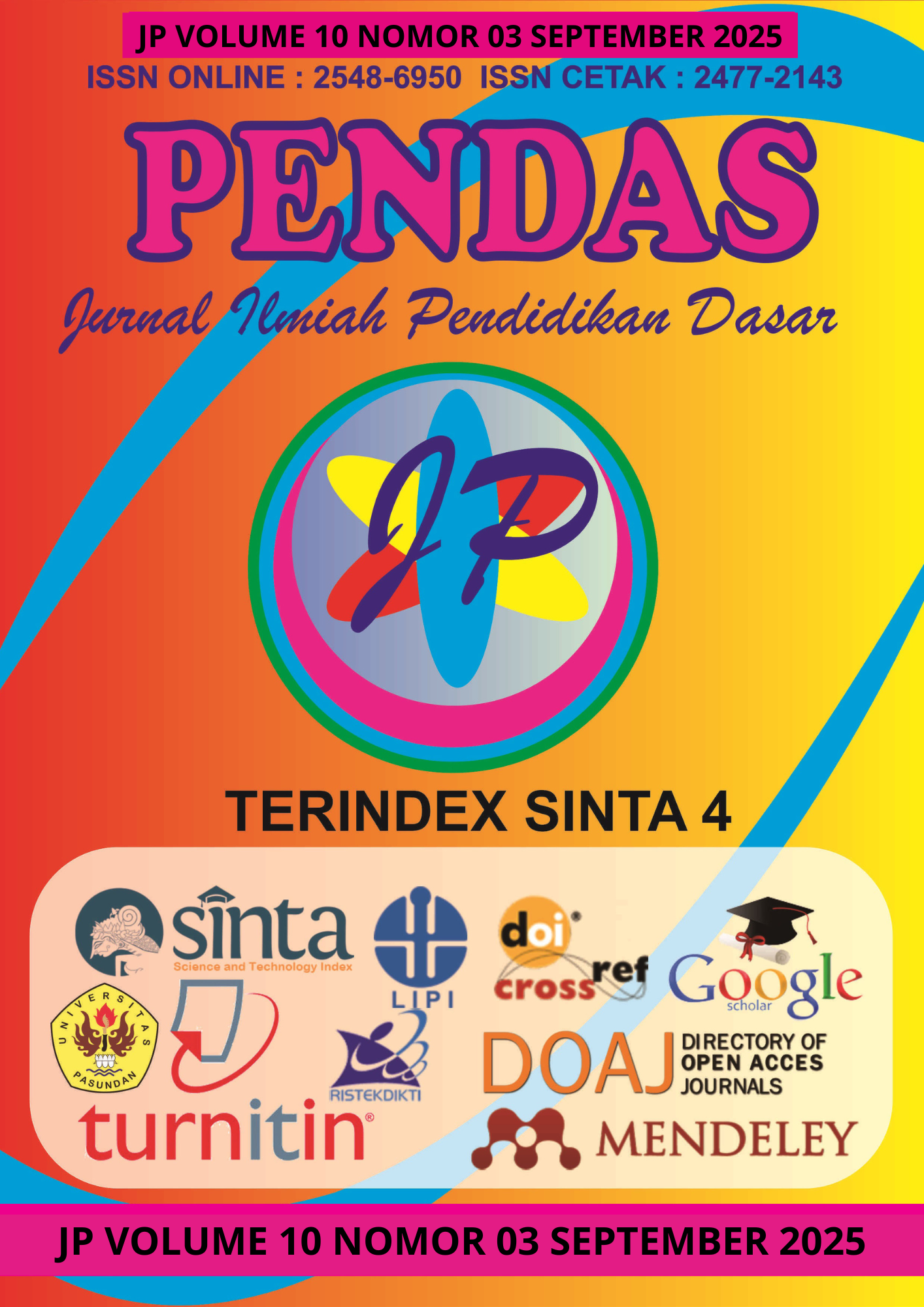EVALUASI PROGRAM ADIWIYATA DI SDN 2 CIJULANG
DOI:
https://doi.org/10.23969/jp.v10i03.30017Keywords:
CIPP evaluation, adiwiyata, elementary schoolAbstract
This study aims to evaluate the implementation of the Adiwiyata Program at SDN 2 Cijulang using the CIPP evaluation model (Context, Input, Process, Product). The program has been implemented since 2022 as an effort to foster environmental awareness and character among students. The findings show that the program planning was carried out participatively, supported by adequate resources, and utilized the school’s surrounding environmental potential. Despite challenges related to budgeting, student awareness, and facility management, the implementation has been comprehensive through daily activities, integration into learning, and collaboration with external parties. The product evaluation reveals that students demonstrate strong understanding and active participation in environmental activities and have successfully developed innovative processed products from school-grown crops with practical and economic value. Overall, the Adiwiyata Program at SDN 2 Cijulang has succeeded in building a sustainable culture of environmental care in the school environment.
Downloads
References
Bachtiar, B. (2021). Desain dan Strategi Pelaksanaan Program Pelatihan untuk Capaian Hasil Maksimal. EduPsyCouns: Journal of Education, Psychology and Counseling, 3(2), 127–140.
Dalmia, D., & Alam, F. A. (2021). Evaluasi Program Model Context dan Input dalam Bimbingan Konseling. Jurnal Bimbingan Konseling Dan Psikologi, 1(2), 111–124. https://jurnal.stkipmb.ac.id/index.php/jubikops/article/view/158
Esa Lestari, P., Mulyadiprana, A., & Setiadi, P. M. (2024). Analisis implementasi program adiwiyata dalam menanamkan karakter peduli lingkungan pada siswa di sekolah dasar. COLLASE (Creative of Learning Students Elementary Education), 7(4), 682–691. https://doi.org/10.22460/collase.v7i4.19663
Friskila Angela, V. (2023). Strategi Pengembangan Ekowisata dalam Mendukung Konservasi Alam Danau Tahai. JIM: Jurnal Ilmiah Mahasiswa Pendidikan Sejarah, 8(3), 984–993. http://jim.unsyiah.ac.id/sejarah/mm
Julianto, A., & Anisa Fitriah. (2021). Evaluasi Program Ekstrakurikuler Baca Al-Qur’an Di SMP Negeri 03 Bengkulu Selatan. Jurnal Pendidikan Islam Al-Affan, 1(2), 175–184. https://doi.org/10.69775/jpia.v1i2.28
Kamila, N., Banis, S., Hakki, N., & Amalia, A. (2024). Teori belajar multiple intelegensi. 1686, 1–14.
Lagantondo, H., Pandipa, A. K. H., & Thomassawa, R. (2023). Analisis pelaksanaan evaluasi program pemberdayaan masyarakat di Desa Tiwaa. SOSIOLOGI: Jurnal Ilmiah Kajian Ilmu Sosial Dan Budaya, 25(1), 54–71.
Nurulloh, E. S. (2019). Pendidikan Islam dan Pengembangan Kesadaran Lingkungan. Jurnal Penelitian Pendidikan Islam, 7(2), 237. https://doi.org/10.36667/jppi.v7i2.366
Rama, A., Ambiyar, A., Rizal, F., Jalinus, N., Waskito, W., & Wulansari, R. E. (2023). Konsep model evaluasi context, input, process dan product (CIPP) di sekolah menengah kejuruan. JRTI (Jurnal Riset Tindakan Indonesia), 8(1), 82. https://doi.org/10.29210/30032976000
Zulfikar, E. (2018). WAWASAN AL-QUR’AN TENTANG EKOLOGI: KAJIAN TEMATIK AYAT-AYAT KONSERvASI LINGKUNGAN. 1.
Downloads
Published
Issue
Section
License
Copyright (c) 2025 Pendas : Jurnal Ilmiah Pendidikan Dasar

This work is licensed under a Creative Commons Attribution 4.0 International License.



















